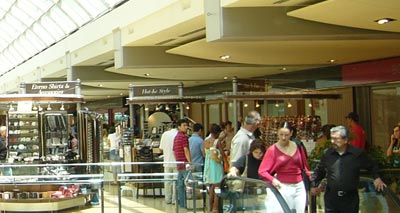 |
 |
|
|
Typical Start Up Costs
Every business is different, but usually most businesses will have some kind of start up costs which could include the following:
- Legal fees / Administration Fees
- Stationery such as printer paper, business cards, leaflets, blank invoices
- Brochures
- Computers
- Internet
- Inventory
- Insurance
- Rent
- Advertising/Marketing
- Franchise Fees
Businesses are very different so some companies won't have any stock or need to send any printed materials to their customers...it's possible these days to do pretty much everything online if you don't have tangible goods to sell. Having said that it is still a useful marketing tool to have things like business cards just in case you meet anybody who might be interested in your digital products or services.
Legal Fees / Administration Fees
All companies are likely to have some legal or administration fees - this could be just to register your company. Other legal fees might be to get a special licence in order for you to trade legally, you might want to trademark your products or require patents to protect your ideas. A lot of these types of thing can cost a lot more if you get third parties to do them for you, but the reality is that most of the time a little research and you can do them yourself saving you a lot of hard earned cash. Of course the trade off is that these things require researching into and therefore if your time is a premium it can be cheaper to get a professional to do the jobs for you.
Stationery
Even living in the so called paperless office - it's very hard not to use paper. You can use your stationery to also promote your contact details such as phone,mobile,e-mail and web address(es). If you pay a little more you can get letter headed stationery which can also save you money in ink if you buy in bulk from a professional printers.
Brochures
A brochure is a great way of explaining to potential customers what you do. These can be quite time consuming to put together as well as being quite expensive to print off.
Computers
Most companies will tend to have a website, therefore you'll need a computer just to look at your own website and make sure it is running okay as well as receiving feedback from feedback forms and e-mails.
Internet
Obviously if you have a website then you'll also need access to the internet which is usually a monthly cost. You can also use the internet for carrying out research on your competition.
Inventory
If you sell physical goods then you'll need to purchase products in order to sell them. This can be a big problem if you sell items in different sizes and colors. You might need to have 36 items just to have 1 product if it has 6 different sizes and 6 different colors. If you can drop ship your items then you can avoid having an inventory and offload the problem onto someone else.
Insurance
This could be to protect loss of your physical goods or damage to them, you can protect your data, you might also need insurance if you are dealing with the general public called public liability insurance.
Rent
If you have a physical shop then the likelihood is you are renting your premises. You'll usually have to pay a deposit up front and at least a month in rent. As well as rent you might have to pay business rates which are paid in installments...you may get relief on this depending on various factors such as the size of your company or if you are a charity for example.
Advertising/Marketing
For people to get to know that you're actually selling something you have to do something to let them know. These can be simple business cards to paying for google adwords to bring traffic to your website.
Franchise Fees
If your business is a franchise you will generally have an initial outlay to buy your business as well as monthly/yearly costs to keep it going and purchasing your raw materials or products if you are selling a franchised product.
Related articles
